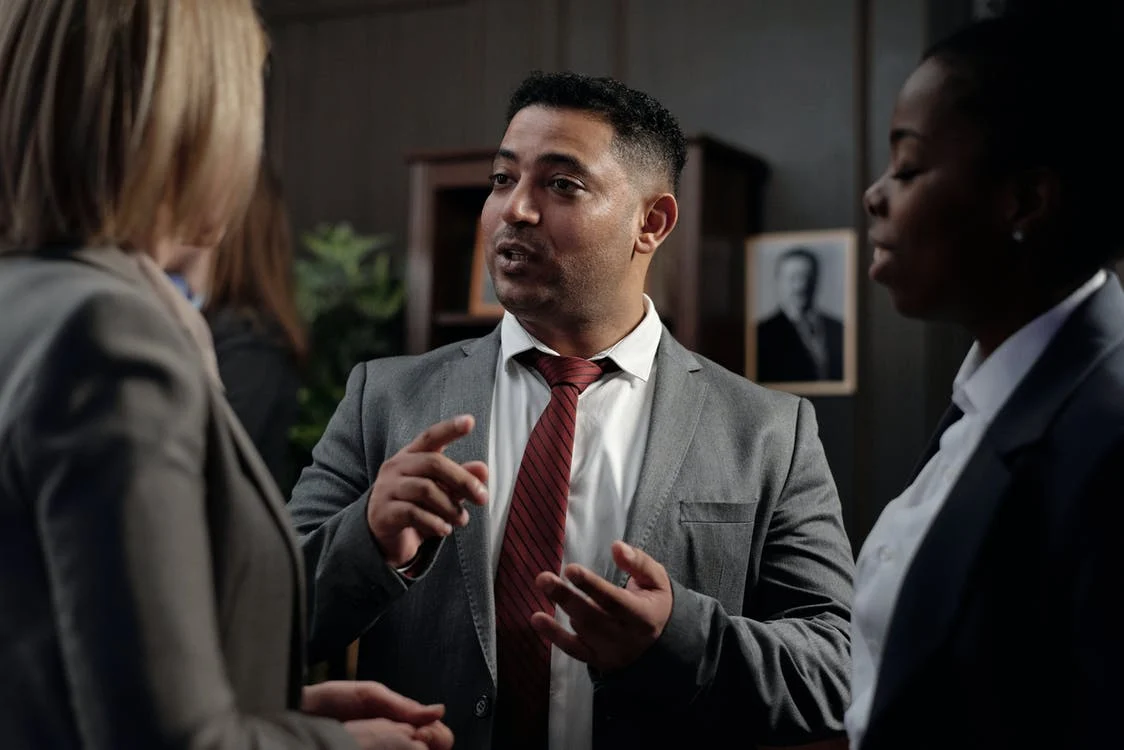You’ve decided to consult with a lawyer, checked online, and found out that there are hundreds of different attorneys and law firms. They all seem similar, and you don’t know how to choose the right fit for your case, perhaps? Don’t start panicking just yet. We’re here to give you the down-low on how to sort it all out.
Choosing an attorney requires some research and effort. You have to consider the specifics of your request, not just find someone who offers the lowest price or has their office nearby. In this article, we’ve listed ten factors to pay attention to when picking an attorney.
Without further ado, let’s get to it!
Field of law
When choosing a lawyer, the first thing you have to do is figure out what kind of issue you’re facing. Law has many branches, and different lawyers have different specializations, such as real estate, intellectual property, or family law. Just as you wouldn’t ask an eye specialist to treat a cough, you don’t hire a criminal attorney to handle a divorce. When looking for a lawyer to deal with your company’s legal matters, you need to search for specialists in corporate law, or perhaps intellectual property, for example.
If you don’t know where to start, consult a general practice lawyer or a trusted business partner to determine the kind of specialist you need in your case.
Cooperation period
The next important factor is the duration of your cooperation with the attorney. For example, do you need constant legal and tax support to handle the day-to-day affairs of your business? Or do you want a lawyer to help you with a one-time request like drawing up a contract for a house sale or managing an inheritance?
Choose a lawyer or firm which meets your legal needs. If you plan to work with an attorney long-term, check if the firm will have the time and resources to manage your legal activity continuously, rather than as a one-off.
Experience
When talking with a potential legal partner, don’t forget to ask about their case history and how they’ve managed them. Attorneys that have already worked on cases similar to yours don’t need to spend days or weeks learning all the relevant laws and regulations. They know what to do right away.
Since they’ve had a lot of practice, these lawyers know how to work around the common traps and see the pitfalls from a mile away. They also can predict the development of a situation depending on the behavior of your counterparties or state authorities and help you prepare an action plan for the future.
Success rate
An attorney’s success rate is just as important as their experience, if not more. Experience shows how many cases lawyers have gone through, but what if they failed or lost them all?
There’s no need to look for a 100% success rate because you’ll be looking far too long. Instead, aim for a number that will make you confident that the attorney will deal with your case efficiently. If you can’t find information about their success rate online, don’t be shy to ask the lawyer about it. Also, ask them to explain the reasons for failed cases, especially ones similar to your own, to understand whether it was their fault or an unfortunate coincidence.
Firm size
The firm’s size also matters because small law firms and large corporations have different capacities and levels of expertise. Lawyers who work with large firms may have more resources to handle complex cases. Additionally, large firms have many lawyers who practice in different fields, which is convenient if you need a one-stop shop for various legal issues.
Meanwhile, individual lawyers or small firms usually specialize in one or several fields and will be suitable for one-time consultations.
Prices
Rates are another factor to consider when choosing an attorney. It’s essential to ask the lawyers about their billing process, possible overhead expenses, including travel charges, and anything that might pop up while handling your caseload.
For example, some lawyers offer reduced hourly rates for increased volumes of work; others work on a fixed-price basis depending on the specifics of a case or project. Learn all of these details beforehand and choose the attorney or law firm that meets your budget.
That being said, prices should not be the first factor for consideration because even the most expensive lawyer won’t be of much help if their area of expertise differs from your needs.
References
When considering several candidates, ask them to leave the contacts of some of their clients so that you could ask them about their experience. Chances are, most of the cases an attorney has worked on are protected with an NDA. Besides, even when they’re not, lawyers will most likely leave the contacts of their most satisfied clients, so don’t limit your research to that. Instead, check for online reviews or contact bar associations to learn about possible complaints against or disciplinary sanctions imposed on your candidates.
Regional specialization
Different countries have different legal systems. For instance, the United States and the United Kingdom have a common law system, while France and Germany have a civil law system. These systems define the procedures of law adoption and resolving issues in court. Besides, laws and regulations vary from country to country, even if they belong to the same legal system. So, for example, a French lawyer would do little to no good when working a case in the United States and vice versa.
If you are looking for a lawyer online, pay attention to the law firm’s location and regional specialization. As a rule, local specialists most likely will have a better understanding of local laws, policies, and the procedures of the judicial or administrative authorities.
Communication
Don’t underestimate the importance of communication when choosing an attorney. You shouldn’t be the first to call and ask about the developments in your case. Instead, the lawyer should keep you in the loop and explain all the details to you.
A competent attorney understands when to communicate the news through email or message and when a personal meeting is necessary. They also present you with a range of options and solutions before making decisions and creating a plan of action. In addition, they always make sure that you understand all the advantages and disadvantages of every possible scenario to make informed decisions.
Rapport
Last but not least, rapport also is a critical factor to consider. Yes, you are looking for a professional lawyer, not a friend to spend your free time with, but you still need to trust your lawyer and feel comfortable around them. Handling legal affairs is often stressful, so you need a reliable specialist who will be supporting you along the way.
While professional skills and knowledge must always play a primary role in choosing a specialist, don’t forget to pay attention to their soft skills. It will help you to pick an attorney from a few equally good options.
Summary
No matter which country or city you need legal advice in, there are probably a lot of lawyers offering their legal services in that area. So, it may be tempting to choose the first one you find online. But having the wrong attorney won’t help your case and may even hinder it.
The list of criteria outlined in this article will help you pick an attorney that matches your needs best. Consider all the qualities mentioned above when looking for a lawyer. If you learn the lawyer’s area of expertise and regional specialization, do thorough research on their experiences, check their success rate, and ensure that they communicate professionally, choosing the right option should no longer seem too difficult.
Author: Yuri Zaremba
General Manager at AXDRAFT (an Onit company) – documentation automation software. By the age of 25, Yuriy became the youngest Legal 500 lawyer from Ukraine, which he achieved by building a top tier real estate practice in just two years. It was then that Yuriy became obsessed with solving one of the biggest pains that lawyers have — contract processing.


